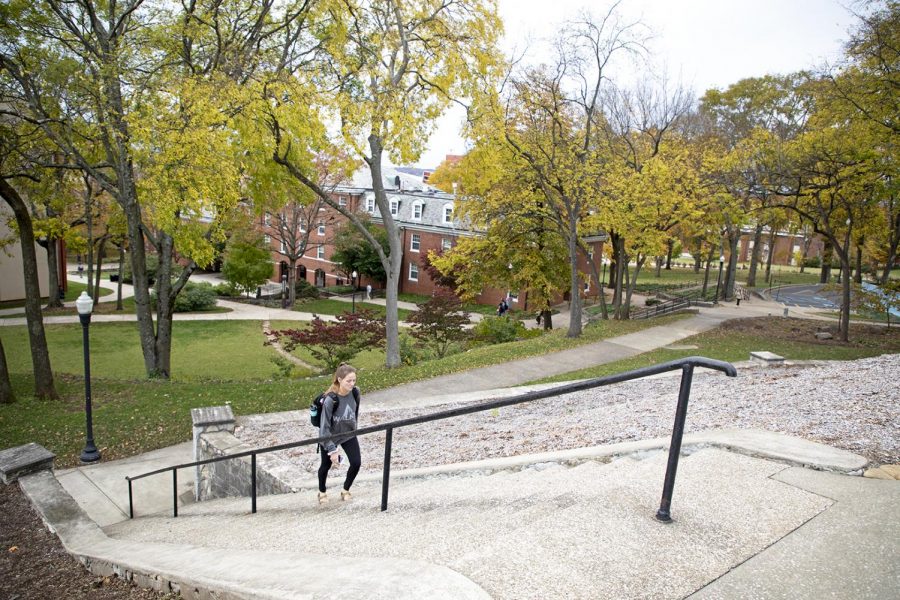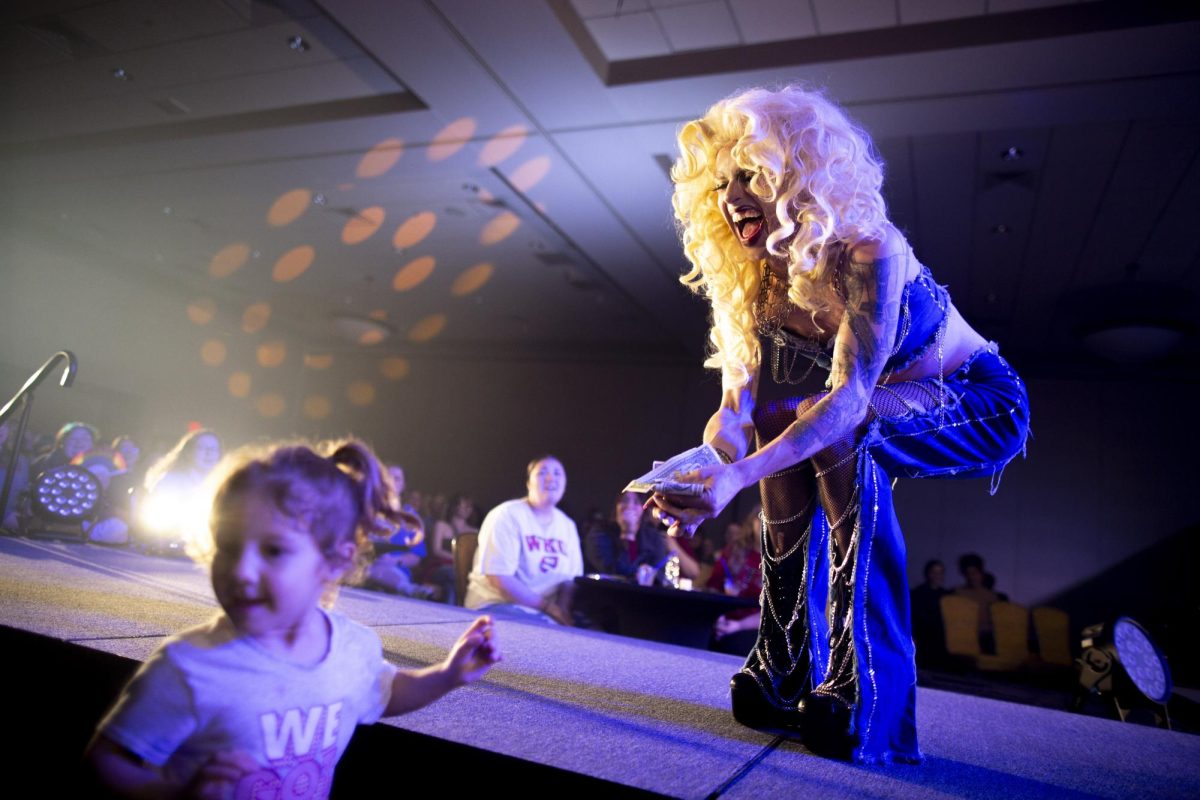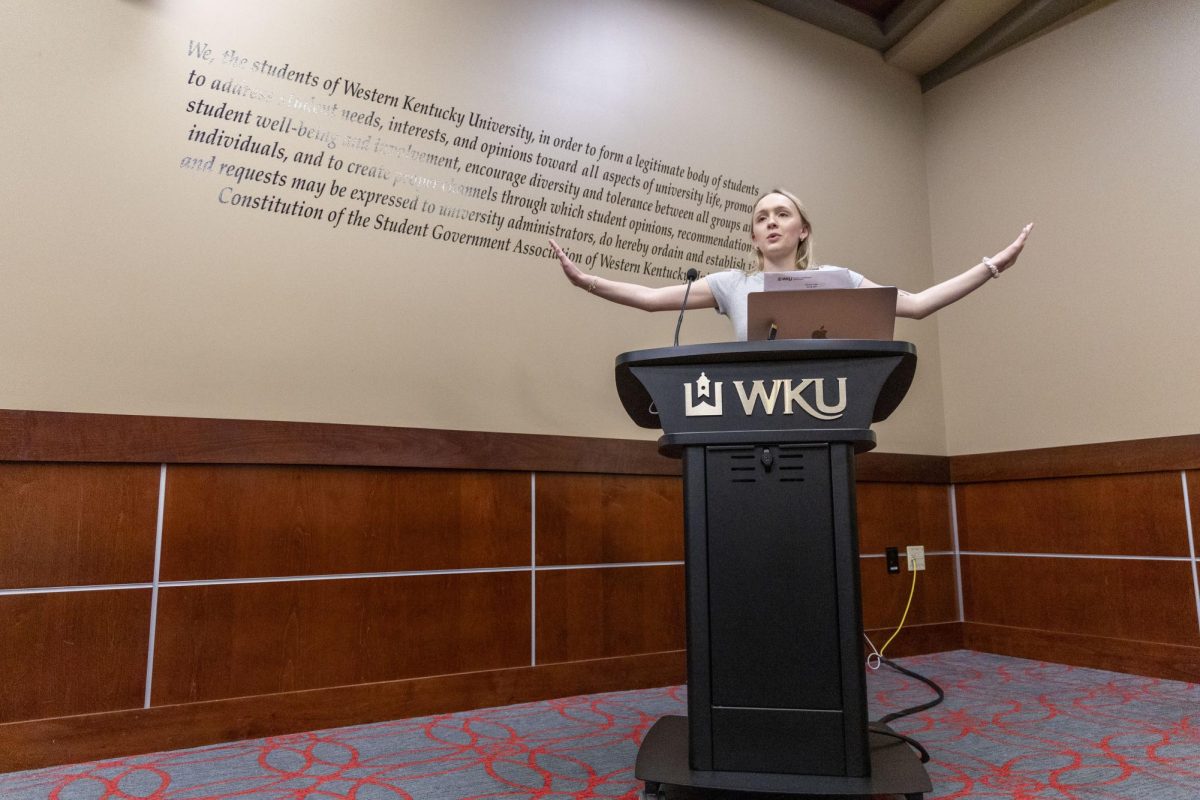WKU lacks disabilities plan in active-shooter scenario
November 6, 2018
Currently there is no special plan in place on campus for people with disabilities in an active shooter situation, WKU Environmental Health and Safety Director David Oliver said.
A report by the FBI designated 50 incidents in the United States as active shooter incidents in 2016 and 2017. Seven of the 50 were reported in education environments, according to the report, although none of those seven were in a college or university environment.
Two notable active shooter incidents have occurred in Kentucky in 2018, with the shooting at Marshall County High School in January and the recent shooting at a Louisville Kroger in October.
WKU follows a plan from the FBI detailing instructions for those caught in an active shooter situation, which advises people to either run, hide or fight.
But what about students, faculty or staff on campus with disabilities?
“We don’t have a plan right now because there’s not a prescribed process out there,” Oliver said. “This is one area where there isn’t a national standard [for people with disabilities] or prescribed action because by its nature an active shooter situation is so dynamic. It’s not like a fire evacuation—there’s no good way to plan for potential scenarios.”
Oliver said he recommends during prevention training that those with mobility impairments take the “hide” option of run, hide or fight.
“Typically, the best option would be to barricade themselves in place,” he said. “We need to make sure folks with disabilities are taken care of by others, especially if it comes to them having to evacuate or relocate.”
WKU violence prevention and response training for organizations or groups on campus can be done at any time by request, where more specific questions concerning mobility impairment options can be addressed, Oliver said.
In the event of an active shooter, a campus-wide alert will be sent via text message. WKU’s Management Plan advised if gunfire is heard to “run away from the area if safe to do so,” and if not, to “take refuge that can be locked from inside.” The report also states that if possible, “block the door to discourage entry … hide inside the area behind a desk, under a table, in a closet or whatever is available … remain still and quiet.”
There is no mention in the plan for procedures if a person has disabilities.
In the event of other emergency evacuations such as a fire, WKU advises, “Help those who need assistance, especially physically challenged persons, in evacuating or relocation to an area of safe refuge.” Only trained personnel may assist in stairway evacuation of wheelchair uses.
There are no special recommendations for people with disabilities at WKU in the event of a tornado.
WKU Police public information officer Tim Gray said one of the most important things to do in preparation for any potential emergency is to identify any students with physical or mental disabilities.
“Know your students,” Gray said. “If you know your people and who you’re responsible for, it’s always a good move to get together and find out directly from them the best plan for them in the event of an emergency situation.”
Gray recommends now that faculty, staff and residence advisers on campus make an individual emergency plan to prepare.
In the event of an an active shooter situation, he said the best option for people with disabilities would be to lock or barricade themselves in a space.
“In such a situation, trying to outrun or move quickly might not work to their advantage,” Gray said.
Oliver said that although there is no model to follow with instructions specifically regarding people with disabilities, a future version including them is not out of the question.
“It’s unfortunate, but right now there’s no good answer to that question,” he said. “We’ll have to keep an eye out and always stay up to date with the most recent training.”
Reporter Emily DeLetter can be reached at 270-745-6011 or emily.deletter304@topper.wku.edu. Follow her on Twitter at @emilydeletter.













